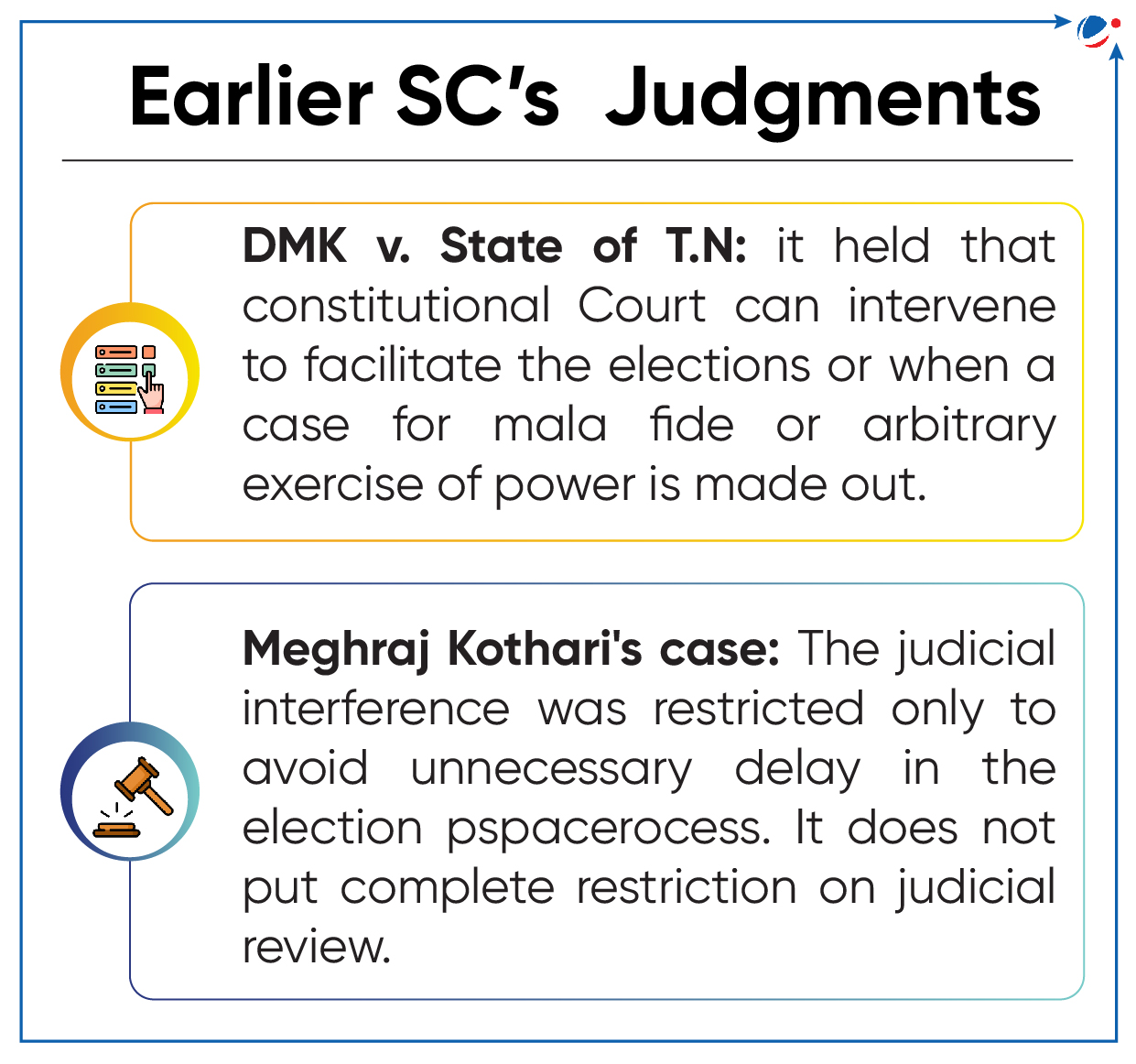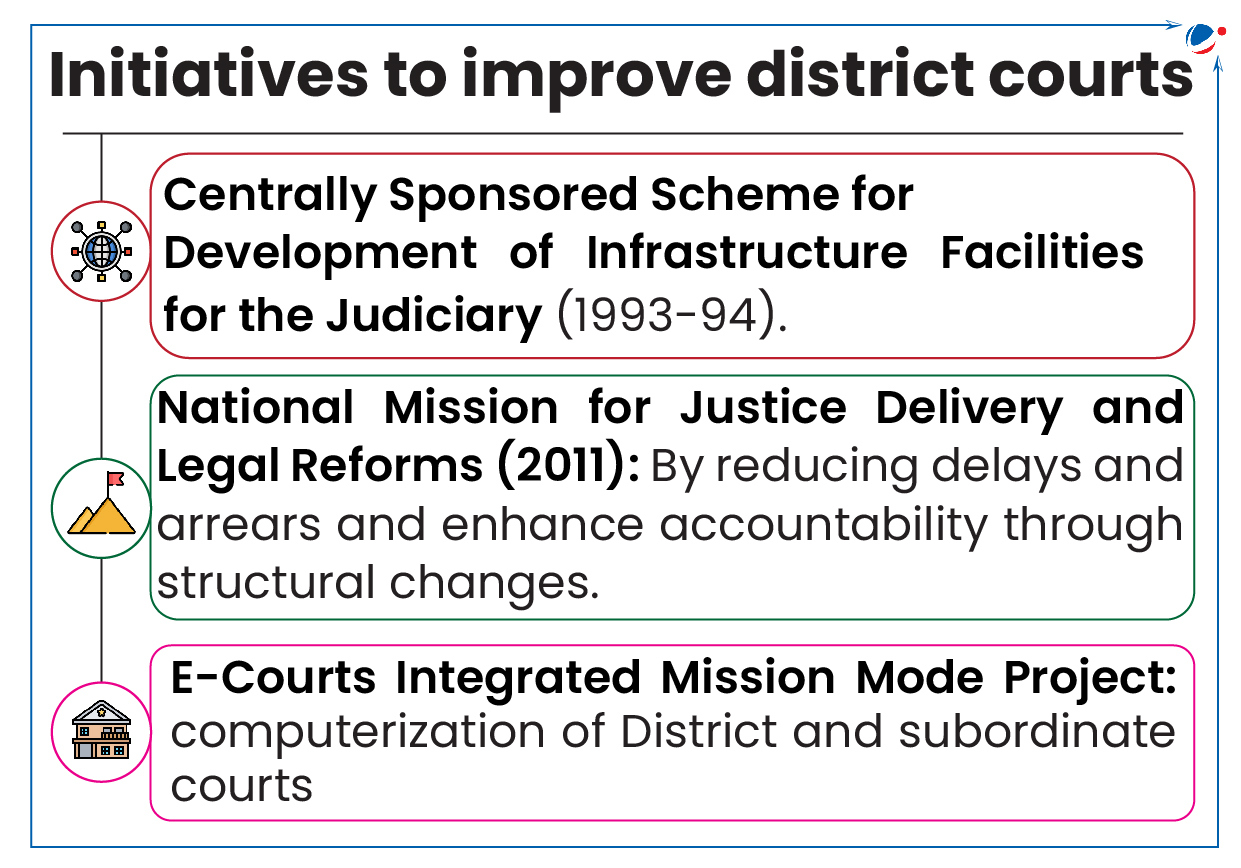Anticipatory Bail Under SC/ST Act
Recently, a 2-Judge bench of the Supreme Court held that bar on anticipatory bail under Section 18 of the SC and ST (Prevention of Atrocities) Act, 1989 is not applicable unless a prima facie case under the Act is made out against the accused.
- Section 18 of the Act states that Section 438 of the CrPC, which provides for anticipatory bail, shall not apply in relation to cases involving offence under the Act.
Other Key Highlights of the judgement
- Court observed that mere insult of a member of SC or ST is not an offence under the SC/ ST Act unless the accused had the intention to humiliate based on caste identity.
- Only intentional insult or intimidation caused by entrenched social norms like untouchability or caste superiority, qualifies as the type of insult or intimidation envisioned by the Act.
Anticipatory bail
- It is a direction by High Court or the Court of Session to release a person on bail, apprehending arrest on accusation of having committed a non-bailable offence.
- Section 438 of the Code of Criminal Procedure (CrPC) contained provisions related to anticipatory bail.
- Under reformed criminal laws, Section 482 of Bhartiya Nagarik Suraksha Sanhita (2023) contains relevant provisions for anticipatory bail.
SC and ST (Prevention of Atrocities) Act, 1989
|
- Tags :
- Anticipatory Bail
- SC & ST Act
- Prevention of Atrocities Act 1989
- Section 438 of CrPC
Delimitation Commission
SC in Kishorchandra Chhanganlal Rathod case held that constitutional courts have the power to review orders of the Delimitation Commission if an order is manifestly arbitrary and irreconcilable to constitutional values.
- Earlier Gujarat HC had dismissed petition challenging delimitation exercise, taking note of Article 329(a) of Constitution, which bars interference by Court in electoral matters.

About Delimitation
- Delimitation is the process of fixing the number of seats and boundaries of territorial constituencies in each State for the Lok Sabha and Legislative assemblies.
- Responsibility of delimitation is assigned to a high-power body known as Delimitation Commission (Boundary Commission)
- Under Article 82, Delimitation is done by such authority and in such manner as Parliament may by law determine.
- In India, such Delimitation Commissions have been constituted 4 times – in 1952, 1963, 1973 and 2002.
- Tags :
- Delimitation Commission
- Delimitation
- Article 82
- Article 329(a)
Boilers Bill, 2024 introduced in Rajya Sabha
It will repeal Boilers Act, 1923 which was enacted with to ensure uniformity throughout India in all technical aspects pertaining to regulation of boiler.
- Earlier, act was amended by Indian Boilers (Amendment) Act, 2007 which introduced inspection and certification by independent third party inspecting authorities.
- Act was further reviewed to incorporate decriminalised provisions in consonance with Jan Vishwas (Amendment of Provisions) Act, 2023.
Key features of Bill
- Define competent authority as an institution recognised in such manner as may be specified by regulations, for grant of certificate to the welders for welding of boiler and boiler component.
- Any person who makes any structural alteration, addition or renewal in or to a boiler without obtaining authorisation of Chief Inspector shall be punishable.
- With imprisonment which may extend to two years or with fine which may extend to one lakh rupees, or with both.
- Central Government has power to remove any difficulty in giving effect to provisions of Boilers Act, 2024 within a period of three years from date of commencement of this Act.
- Central Government constitute Central Boilers Board to regulate design, manufacture, erection and use of boiler and boiler components.
Objective of Bill
Importance of Industrial Boiler
|
- Tags :
- Boilers Act, 1923
- Indian Boilers (Amendment) Act, 2007
- Boilers Bill
- Industrial Boiler
- Boliers Bill 2024
Articles Sources
State of Infrastructure in District Courts
Union Ministry of Law & Justice published a report titled ‘Empirical Study to Evaluate the Delivery of Justice through Improved Infrastructure’.
- The report focused on various aspects of Infrastructural issues faced by Chief Administrators, Judicial Officers, Advocates, and Support Staff.
Key Findings of the Report
- Basic infrastructure: ~37.7% of Judicial Officers (JOs) have reported lack of adequate space in courtrooms.
- Human resource: Shortage of JOs with lack of adequate training and skill development to effectively manage workload and maintain a timely disposition of cases.
- Digital infrastructure: Lack of computerisation of the Offices of District Legal Services Authority (DLSA) and Taluk Legal Services Committee (TLSC).
- Inability of advocates to cope up with technicality of digitization process, increased burden on support staff due to E-Court missions, etc.
- Other issues with district courts: Lack of cooperation and coordination among all departments of District Court, temporary or casual employment of support staff leads to lack of support within the court system, etc.

Key Recommendations
- Establish an independent IT department equipped with the latest hardware and software with sufficiently trained manpower to manage and service, at District and Taluka courts.
- More emphasis should be laid on sustaining the filed cases in electronic form till the end to increase efficiency.
- Creation of separate Civil and Criminal Courts headed by separate JOs.
- Tags :
- District Courts
- Infrastructure of District Courts
- DLSA
- Judicial Officers



